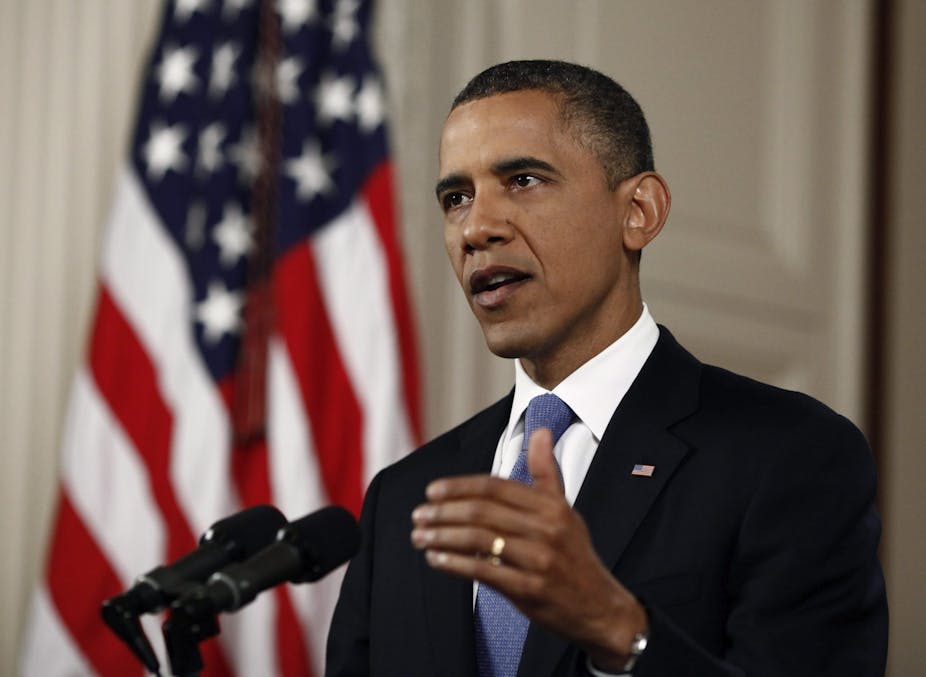The decision of the US Supreme Court in National Federation of Independent Business v Sibelius, Secretary of Health and Human Services upholding key sections of the US health care legislation known as Obamacare (sometimes and formerly known as Romneycare) is reminiscent of those lyrics from Mary Poppins, where Julie Andrews sang “just a spoonful of sugar helps the medicine go down.” Indeed, the Supreme Court did not say a lot but that spoonful was just enough for the first universal health-care plan in the US to survive.
In a five-four decision, written by Chief Justice Roberts and joined by Justices Breyer, Ginsburg, Sotomayor and Kagan, this “odd-couple” Court held that the most contentious aspect of the legislation – the mandate – was constitutional as a lawful tax.
The US legislation, generally acknowledged to be modelled on the successful Massachusetts program implemented when Mitt Romney was governor of that state, is fundamentally not a national health scheme at all. It’s just a program requiring Americans to purchase health-care insurance from private providers.
Despite their protestations of this being the thin edge of the wedge, this program promises to be a bonanza for the insurance industry. If a citizen with financial resources refuses to purchase cover, that citizen must pay a penalty to the government.
Where the US plan differs from the Massachusetts plan is in its constitutionality. While there was never a constitutional question about the legality of the Massachusetts mandated plan, there were questions about the constitutionality of the federal plan. By the way, since its inception, the Massachusetts plan has achieved nearly universal coverage for state residents.
The source of the constitutional issues went directly to the theory of American government itself. The federal government is limited to powers given to it by the states. The states, in turn, are free to legislate as they may desire, subject only to their own constitutions and limited only by powers ceded to the federal government, such as defence and patent laws. So, Massachusetts was free to build a health-care system for its residents. But for the federal government, that’s another question because a source for such legislative power must be found somewhere in the Constitution enacted in 1789.
Ever since the New Deal of Franklin Roosevelt, federal power has spread and legislation has been justified through expansive readings of the Constitution’s grant to the federal government to regulate interstate commerce. The Commerce Clause has been repeatedly and consistently applied by the Court to sanctify legislation regulating everything from airports to civil rights and, at times, it seemed that this grant of power had no limits.

Yet, this well-recognised basis for federal jurisdiction was rejected by the Roberts Court. Playing a close second to the Commerce Clause was the Constitution’s necessary and proper clause. This was another blanket grant in the Constitution authorising the federal government to enact all laws necessary and proper to implement the enumerated powers. This was also rejected by the Chief Justice.
Now, Justices Breyer, Sotomayor, Kagan and Ginsburg would have preferred a somewhat more expansive decision. But, faced with a four-vote dissent that was determined to strike down the legislation, the four supporters clearly, but not necessarily enthusiastically, adopted the view that discretion is the better part of valor and joined in the position of the Chief Justice. Had they rejected his narrow reading, make no mistake, the legislation was doomed as the Chief Justice would not accept Commerce Clause and necessary and proper arguments.
The Chief Justice seemed to indulge in some legal legerdemain in reaching his decision that the legislation was lawful under the taxation power of the federal government. Normally, the federal anti-injunction act prevents challenges to tax legislation until after the tax has been paid and a taxpayer sues for a refund. However, Chief Justice Roberts wrote that the anti-injunction law did not apply because Congress termed the payment for not having health insurance to constitute a penalty as opposed to a tax.
Then some pages later, he opined that the health-care mandate was constitutional as constituting a tax and stated that even though the mandate is termed a penalty, it is in fact a tax and therefore is constitutional under the taxation power of the federal government. Undoubtedly biting their collective lips, Justices Breyer, Ginsburg, Sotomayor and Kagan acceded to this legal dipsy-doodle.
The dissenters including Justices Kennedy, Thomas, Scalia and Alito simply frothed at the majority’s logic.
Beyond upholding the legislation, the nearly 200-page decision and dissent brings into focus the approach of the chief justice – minimalism. As opposed to the broad and sweeping pronouncements of the rights-focused Warren Court of the 1950s and 1960s, and even the Burger Court of the 1970s and the subsequent conservative Rehnquist Court, Chief Roberts is the consummate technician. To the extent that he influences decisions, and, in this case, he directed the decision, narrow rulings that will be difficult to apply in other contexts will be the norm.
For those who would like to see an ever-expansive or even narrowing federal role in American life, the decision in the health-care case is not an event for dancing in the streets. It is reminiscent of some now-discredited 18th and 19th century common law decisions hinging not on justice, but on punctuation!
From a political standpoint, President Obama rightfully hails it as a great victory for his administration. But, his likely opponent in the 2012 elections, Governor Mitt Romney, may have summed it all up by saying that the Supreme Court decided that the law was constitutional; but being constitutional only means that it is lawful, not that it is desirable.

